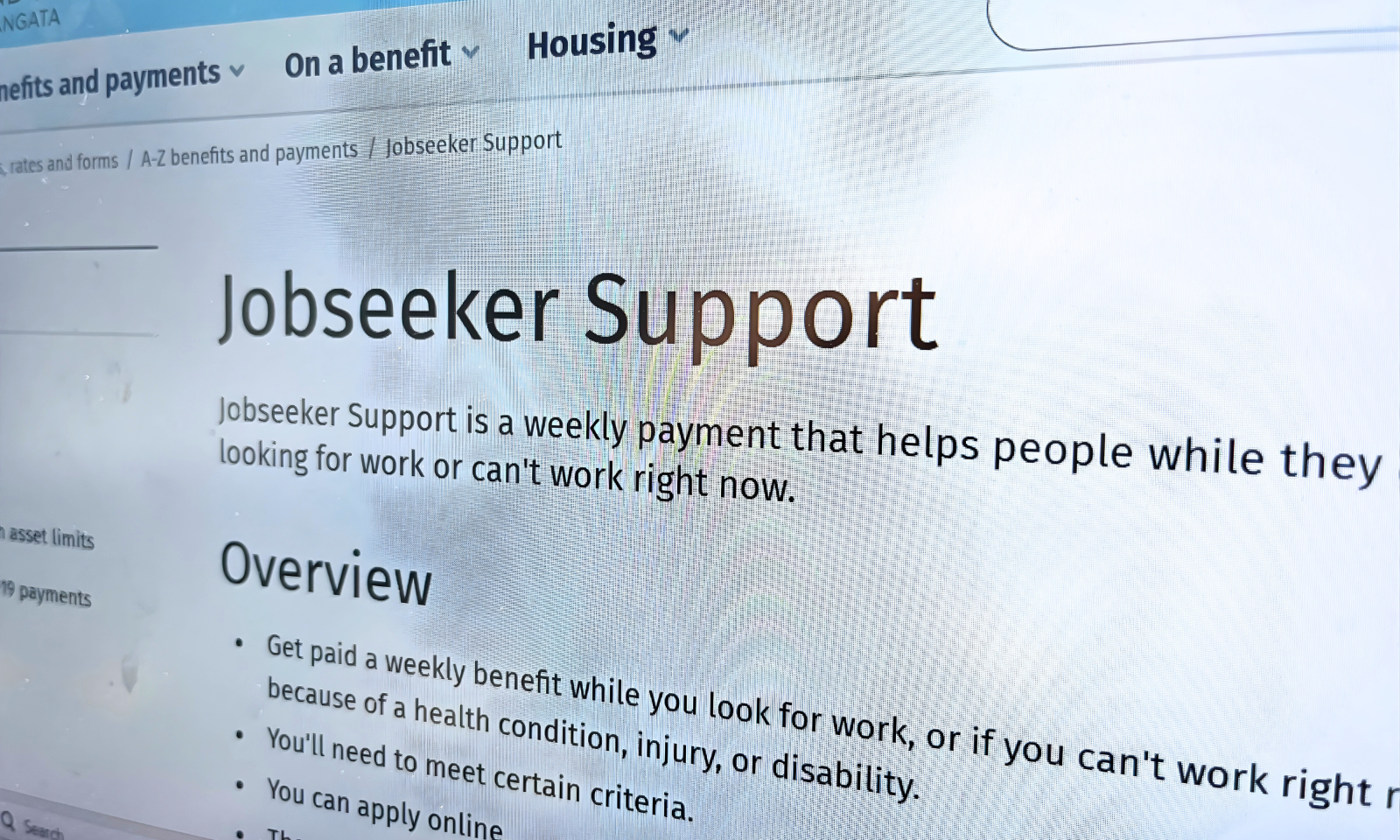

Westpac economist Satish Ranchod, left, and youth advocate Brooke Pao Stanley say families are feeling the pinch as inflation holds steady at three per cent.
Photo/Supplied/PMN Composite
Inflation pressures bite families as relief still months away - experts
Satish Ranchod and Brooke Pao Stanley say everyday essentials remain expensive despite signs of stabilisation, as Pasifika struggle to keep up.



KiwiSaver changes may neglect low-income and Pacific workers - expert


Cook Islands wartime veterans finally get long overdue recognition


Tonga crash to 56-0 after discipline unravels in heavy defeat to Scots

KiwiSaver changes may neglect low-income and Pacific workers - expert


Cook Islands wartime veterans finally get long overdue recognition
Pacific households are being hit hard by rising prices for food, housing and power, even as economists predict inflation will ease next year.
Westpac senior economist Satish Ranchod says annual inflation has climbed to three per cent, the highest in more than a year, keeping the cost of living tough for a lot of households.
Speaking with Pacific Mornings host William Terite, Ranchod says prices are going up for many of the items like food in supermarkets.
“Even though inflation is not as high as it was a couple of years ago, we’ve had really big increases in the past few years on those essentials, so a lot of households are feeling the pressure at the checkout.”
He says the latest bump reflects both domestic and international pressures.
“There’s a bit of a mix going on right now. We are seeing some tradable goods, those that move between countries like food, increasing in price,” Ranchod says.
“But there are also domestic things like rates and electricity costs that are pushing things higher.”
On Pacific Mornings, Brooke Pao Stanley, from the youth housing network Manaaki Rangatahi, says families are struggling to keep up with rising rents and food costs.
“Inflation is up, which means the price of everything has gone up. It’s on top of living in a country where we have one of the highest rental housing prices in the world, and health care that is inaccessible for many whānau.
Listen to Brooke Pao Stanley's full interview below.
“It’s clear that frontline communities are not the priority,” she says.
Pao Stanley points to $12 billion in military spending and $3 billion in tax cuts for landlords as evidence of misplaced priorities.
“They say they don’t have any money, that’s not true. That money could have gone into public services or building housing to ensure everyone is housed.”
Manaaki Rangatahi works with youth housing providers to ensure rangatahi experiencing homelessness are supported into stable living arrangements.
But Pao Stanley says the outlook is grim for young people facing benefit cuts and shrinking job opportunities.
She says government rhetoric about young people “getting off their bum and finding a job” ignores the reality.

Jobseeker Support website. Photo/PMN
“There aren’t any jobs. There aren’t any opportunities. It’s super disconnected from what’s happening on the ground.”
Both the economic data and the social consequences point to a widening gap between those who can weather inflation and those who can’t.
Ranchod says while inflation may be moderating, small price increases still add up for households living week to week.
“Over a longer period, those changes do really mount up. Small changes over a long period actually do amount to a large part of your spending.”
Pao Stanley says the system needs a reset, one based on values like manaakitanga and aroha, not austerity.
“We have to start shifting our relationship to money,” she says.
Listen to Satish Ranchod's full interview below.
“It shouldn’t matter whether or not you have a job or an education. If you’re alive and you exist, that’s important, and you should have everything that ensures you can live here safely and comfortably.”
Ranchod says while prices for everyday goods remain elevated, other parts of the economy are weakening.
“If we look under the surface, there’s actually quite a bit of softness in some of those more discretionary areas and housing costs,” he says.
“That’s important because if it stays soft, the Reserve Bank can cut the official cash rate again.”
Ranchod expects inflation to stay around current levels for the rest of 2025, before easing next year.
“I think inflation’s probably going to remain around these levels for the rest of this year,” he says. “But as we go into 2026, we’re likely to see inflation coming off a bit more.”

Big reduction in mortgages expected. Photo/Supplied.
For households with mortgages, he says some relief is on the way.
“Interest rates have already come down. If you’ve got a mortgage, chances are you’re going to be rolling over in the next three to 12 months, and when you do, you could see quite a big reduction. Hopefully, going into that Christmas period, a lot of households will be feeling a bit better.”
The Reserve Bank faces a delicate balancing act between cutting rates to boost growth and keeping inflation in check.
“They don’t want inflation to get too hot again like we saw over the past few years,” Ranchod says. “But when they look under the surface, they are seeing that softness. The economy’s still struggling a little bit, and they can cut rates a bit more.”